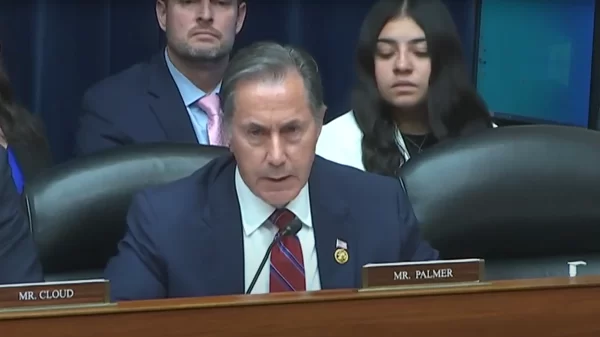|
Getting your Trinity Audio player ready...
|
The Alabama Legislature is taking another swing at the consideration of emotional, social and governance factors by companies contracting with the state.
SB151 by Sen. Arthur Orr, R-Decatur, passed the Senate Finance and Taxation Committee Thursday and can now advance to the full Senate.
The bill would prevent Alabama’s pension funds from investing with any asset manager that actually considers relevant Environmental, Social, and Governance risks, and would prevent government entities from considering relevant environmental and social factors when awarding contracts.
Section 4b of the bill reads: “A state agency, board, bureau, commission, department, or institution or political subdivision thereof, when entering into a contract wholly funded by state funds for the procurement of goods and services and the purchase of professional services may not consider environmental, social, and governance (ESG) criteria, and shall only consider pecuniary factors.”
The bill defines “social” as “diversity, racial justice, pay equity, or social justice issues” and explicitly states that “social” factors are not pecuniary.
“In other words, a government entity, like the Alabama Department of Corrections (ADOC), would be barred from considering relevant “racial justice” factors when hiring subcontractors,” said The Sunrise Project, an anti-fossil-fuel organization tracking anti-ESG legislation across the country. “Hypothetically, ADOC could make a case that, say, a company’s human rights abuse record is related to quality of goods and services, but, given ADOC’s horrific record, it is more likely that the bill will provide cover for continued abuse and systemic racism.”
Current and formerly incarcerated people are suing the Department for coercing labor from Black inmates and setting up a system that constitutes “modern-day slavery.”
The bill would also prohibit Alabama’s retirement systems from investing with any financial institution that is found to “prioritize environmental, social, and governance (ESG) criteria above or in concert with the traditional fiduciary duty to maximize financial benefit.”
The Sunrise Project also estimates the bill could cost the state billions if passed, based on similar legislation in other states.
In Indiana, a similar bill was projected to cost $6.7 billion. The Texas County District Retirement System said that it would lose over $6 billion as well.
Gov. Kay Ivey has already signed legislation last session that is one of the broadest anti-ESG bills in the nation.
“No matter how much Corporate America and the national media want to push their social issue of the day on folks, the state of Alabama will continue protecting both our values and our businesses,” Ivey said upon signing the bill. “Alabama citizens, in no way, shape or form, want ESG influencing business in our state, and this legislation most certainly sends that message. Alabama – where businesses do business and government serves her people! We call it common sense.”
That legislation specifically prohibits state entities and local government from contracting with companies who “boycott” other companies for failing to consider ESG standards.
This new legislation prohibits state entities themselves from considering ESG factors when awarding contracts.
Governance factors that the state entity will not be able to consider when include “political contributions and lobbying, tax transparency, and bribery and corruption” among other things.





















































